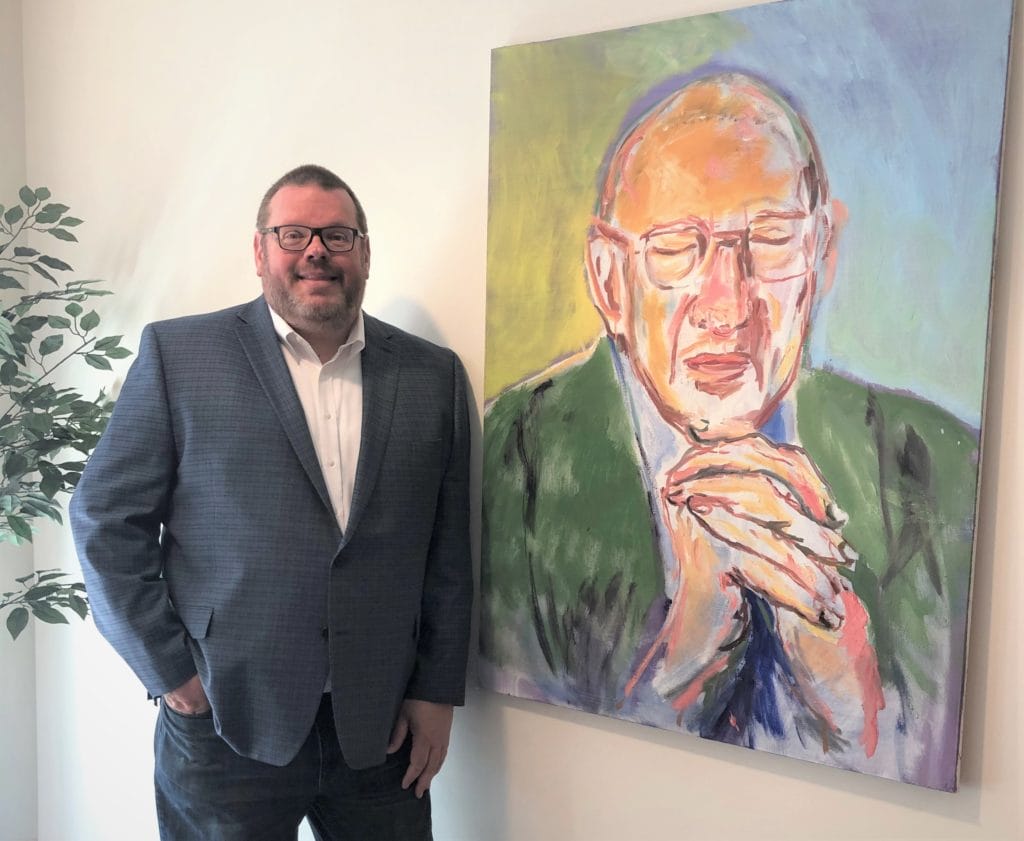‘We’re Perfectly Poised’: Drucker’s New Dean Sees Advantages and Opportunities Ahead

Getting things done at a large institution often takes time. David Sprott learned that lesson over many years at Washington State University (WSU) and as dean of University of Wyoming’s business school.
An Ohio native, Sprott—who has taken over the helm of the Drucker School of Management as Henry Y. Hwang Dean and Professor of Marketing—applied that lesson effectively and accomplished much during his time at both institutions.
At Wyoming, in particular, his achievements as dean included leading the drive for online programs, supporting entrepreneurship across the entire state, re-engagement of quality research by the faculty, launching the college’s support for diversity, equity, and inclusion, and enhanced philanthropic engagement to support student success.
With his move to CGU’s smaller community (the graduate school’s total enrollment is about 2,200 versus University of Wyoming’s 12,500 and WSU’s 30,000), Sprott sees exciting opportunities for the Drucker School in the months and years ahead.
Sprott shared his initial thoughts and impressions in his first weeks as dean in the following brief interview.
***
You have worked at larger schools in the past. Do you see certain advantages in moving to a smaller community like CGU and the Drucker School? CGU President Len Jessup often has said that getting things done at UNLV was like moving a battleship; at CGU, our small size makes us more flexible and able to work more quickly.
Sprott: That’s a great analogy from President Jessup. I do see a series of benefits of working in a smaller university.
First and foremost is the ability to move nimbly and quickly to respond to trends in the market. The benefits of moving fast are even more crucial as we emerge from the post-pandemic world of higher education. Second, I have found that relationships with faculty, staff, alums, and other leaders are critical to being a successful leader. This is considerably easier at an institution the size of CGU and Drucker. Finally, we can more easily fulfill the educational needs of our students and the employee needs of organizations that hire them. The ability to satisfy our core customers is much easier at a place like the Drucker School.
Peter Drucker talked about the critical importance of communications and transparency in any organization. “Because the organization is composed of specialists,” he once said, “its mission must be crystal clear.” That is achievable in any organization, of course, and I think it’s especially true for a smaller one like ours.
Do you think Drucker’s management philosophy is still relevant today?
Sprott: Absolutely. I wouldn’t be here if I didn’t. There’s a human focus to his view of management that continues to appeal to many people and organizations worldwide.
Why does that human focus appeal to you?
Sprott: I have always been fascinated by the human side of business and management. As a marketing professor who studies the behavior of consumers, I have embraced the human side of business in all my research and teaching. Thus, the fit with the Drucker philosophy and the Drucker School is natural for me and one that I fully embrace.
People are central to the functioning of business and society; thus, business schools have a responsibility to provide education and experiences that prepare students for managing and leading others.
Our world is changing in so many ways because of technology and the impact of things like the global pandemic. Higher education is changing, too. As you look to the future of the Drucker School, do you feel optimistic about the Drucker brand and approach to management?
Sprott: The world has never needed the ideas contained within the Drucker philosophy more than it does today.
Why?
Sprott: I am 100% confident that what we teach and how we approach management education is perfect for the issues we’re facing today. Global warming, inequity, technology, diversity, and so on. All of these topics start with human and business behaviors that need to be understood and better managed. While our society is becoming more and more specialized, the need for a broad-based, liberal-arts graduate education has never been greater. We are perfectly poised to address the types of serious problems facing us in the early 21st century.
****